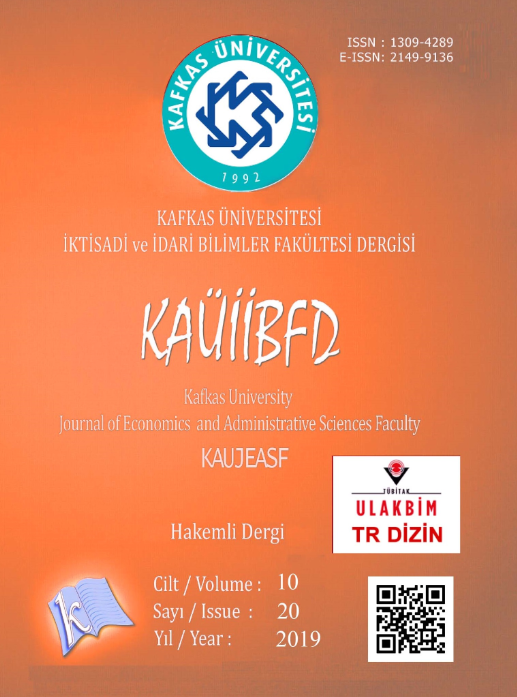SEÇİLİ G-20 ÜLKELERİNDE CARİ İŞLEMLER AÇIĞININ SÜRDÜRÜLEBİLİRLİĞİ: YAPISAL KIRILMALI BİR PANEL VERİ ANALİZİ
SUSTAINABILITY OF CURRENT ACCOUNT DEFICITS IN THE SELECTED G-20 COUNTRIES: A PANEL DATA ANALYSIS WITH STRUCTURAL BREAKS
Author(s): Ömer YalçınkayaSubject(s): Economic history, Economic policy, Evaluation research, Transformation Period (1990 - 2010), Financial Markets
Published by: Kafkas Üniversitesi Sağlık, Kültür ve Spor Daire Başkanlığı Dijital Baskı Merkezi
Keywords: The Intertemporal Model; Sustainability of Current Account Deficits; The Selected G-20 Countries;
Summary/Abstract: In this study, the sustainability of the current account deficits in the selected G-20 countries, which have been determined to meet the current account deficits since the 1990s, when the process of financial outward opening has accelerated, is examined within the framework of the intertemporal model developed by Hakkio and Rush (1991) and Husted (1992). In this context, in the study it is aimed to empirically determine the level of sustainability of the current account deficits during the 1990: Q1-2017: Q4 period in the selected G-20 countries by means of second-generation panel data analysis methodology, taking into account crosssectional dependence and structural breaks. As a result of the study, it was identified that current account deficits during the review period in France, India, Mexico, Australia, Turkey, Italy, South Africa, USA, Indonesia, Argentina and Brazil were unsustainable or sustainable in a weak form while it was determined that current account deficits during the review period in Canada and United Kingdom from the selected G-20 countries were sustainable in a powerful form.
Journal: Kafkas Üniversitesi İktisadi ve İdari Bilimler Fakültesi Dergisi
- Issue Year: 10/2019
- Issue No: 20
- Page Range: 726-753
- Page Count: 28
- Language: Turkish

